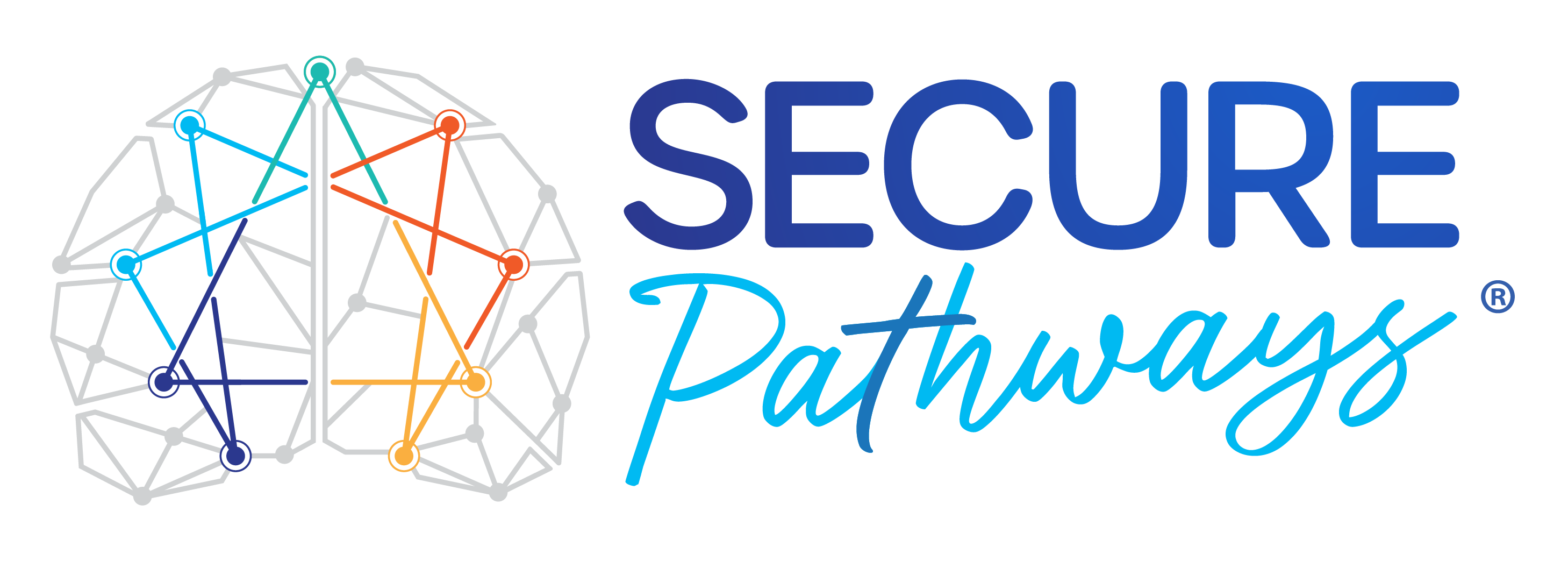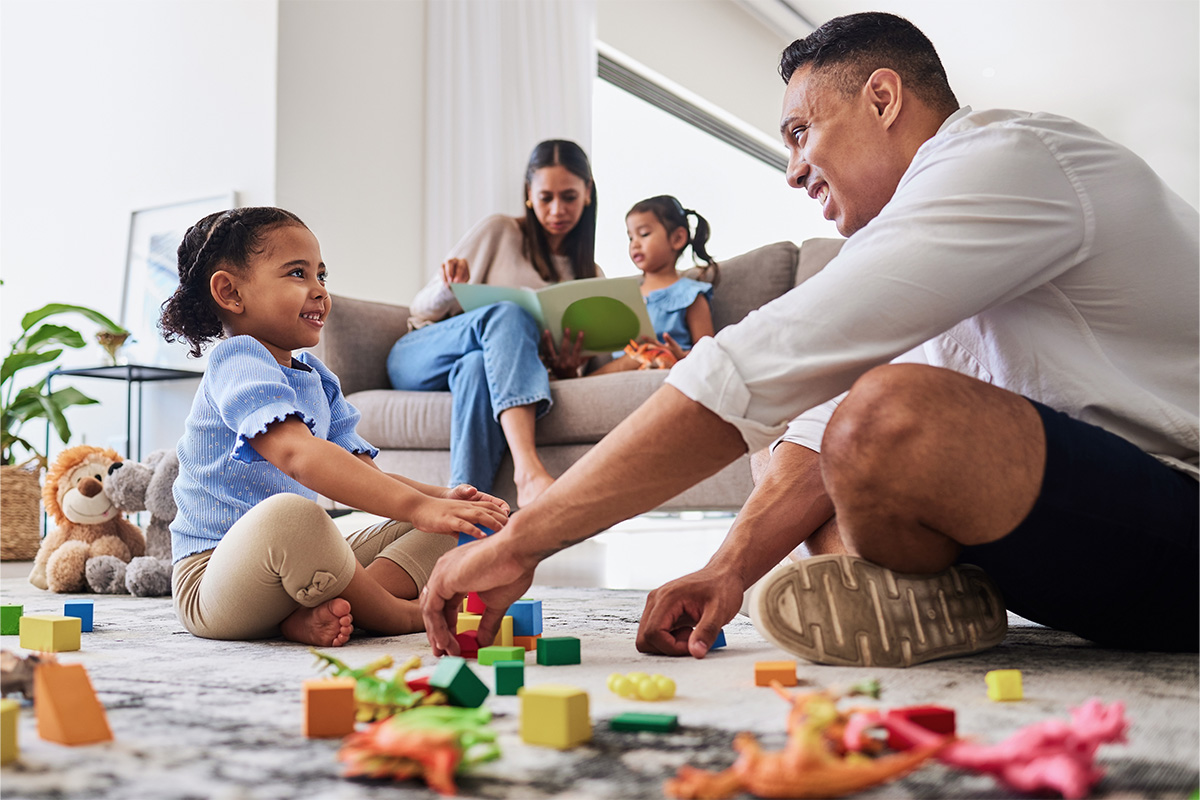To help you engage with family and friends over Christmas, grab my holiday freebie below.
The holidays mean Christmas vacation and lots of family time, making it the perfect opportunity to talk about play! You might think, “It’s just play—what’s so special about it?” Well, you’re in for a surprise. Play is actually a big deal, and it helps kids grow in so many ways.
Why is Play Important?
Play isn’t just something kids do to pass the time—it’s how they learn and grow. Think of play as a super fun way to discover the world. Kids build important skills and learn about themselves and others while playing. It is the way that children explore the world and become competent.
A smart guy once said:
"Play is the highest form of research.” - Albert Einstein
That means when kids play, they’re like little scientists, exploring and experimenting with everything around them. Play is the ultimate learning for children!
Sometimes, parents feel pressure to put kids in activities like sports or lessons to teach them skills. But guess what? Kids often learn just as much, or even more, from open-ended play where they can use their imagination and creativity. Let’s dive deeper into what makes play so awesome.
What is Play?
Play is more than just toys and games. It has special parts that make it valuable and fun for kids (according to Dr. Rachel White’s summary of research on play):
- Pleasurable – it has to be enjoyable and FUN for the child–they laugh, smile, and feel happy while they are doing it
- Intrinisically Motivated – this means children just do it because they want to, there is no outside reward or goal
- Process Oriented – it’s about the journey–what they do along the way is more important than a specific result or how it ends
- Autonomous – they choose on their own what to do and how to do it (assuming it is not dangerous) without direction or pressure from others
- Actively Engaged – hands-on and physically or mentally active
- Imaginative – involves pretend or make-believe
For many parents, they sometimes view play time as an opportunity to teach their child. It may also feel more comfortable for parents to instruct their children rather than join in unstructured free play. When parents try to make play more like a lesson—like quizzing kids on colors or numbers—it can start to feel like work and often loses its appeal. Real play is free and creative. Learning can happen during BOTH play and work. Don’t worry–your child is learning plenty when playing. No need to quiz them frequently.
Much of the time when parents get involved in play, it is considered “guided play” because parents are facilitating children’s learning in some way. It is important for parents to be playful while engaging with their children in play and learning. Parents can guide play by setting it up or by joining in the fun, which may include occasional questions or comments that further the play.
When parents join in with play and hint at other aspects of play, children seem to learn better than with direct instruction. There is something about doing it themselves, using their bodies, and engaging their brains that helps them learn deeper than just being told something.
If parents start directing play, it is no longer child-directed and often loses its appeal when the child is having to be productive or follow the parent’s lead (i.e. it becomes work). Children leading play is part of what is so valuable for children’s enjoyment and development. Children do not have much control over most aspects of their lives. Play is one place where they get to make the decisions and practice being in charge.
Different Ways Kids Play
There are many kinds of play, and each one helps kids in unique ways. Combining several types of play seems to have the most overall benefit to child development, especially when some type of pretend play is included.
During the holidays, you can encourage these types of play with your kids:
Pretend Play – children use their imagination to create their own worlds. They can be creative and pretend to be other characters (such as superheroes or animals) or they can use toys or other objects as the focus of the imaginary play (action figures or stuffed animals). Imagination and creativity abound. Children have freedom to play in their own unique way. It can easily be incorporated with other types of play. Older children and teenagers tend to do fantasy play by themselves or through technology or media (i.e. video games, avatars).
Social Play – children interact with others, like friends or siblings or parents. It is important for children to play with other children because the power dynamics is much more equal or peer-to-peer than when children play with adults. Peer play requires more planning, sharing, teamwork, and resolving disagreements.
Object Play – using a toy or object for exploration or entertainment. It is a way for kids to use their senses and figure out how things fit together or test ideas about how the toy might be used. Kids might build a tower with blocks, create a craft, or explore how a toy works.
Physical Play – gets kids moving! It includes running, jumping, climbing, or even dancing. Activities like playing on a playground, riding a bike, or playing tag are great examples. Physical play keeps kids healthy, builds strong muscles, and helps them focus better during school (here’s a plug for schools to keep recess).
Outdoor Exploration – all about exploring nature. They use all five senses to experience the world—like feeling the sun’s warmth, hearing birds chirp, or smelling fresh air. Exploring outdoors helps kids connect with the environment while being active. Kids can climb trees, dig in the dirt, or make snow angels. Children investigate and notice what is around them. It is observing, making connections, and using all five senses to fully experience nature (weather, geology, wild animals, warmth of the sun or how shadows fall).
Games – competitive activities are more structured that other play but are fun. Board games or hide-and-seek have elements of play. Children love to make up games and rules. Games help kids learn how to follow rules, take turns, and think strategically. For older kids and teens, organized sports or games might be their favorite way to play with peers.
Why Play Matters
Play is more than just fun—it helps kids grow in every area of life! Here are some ways play helps:
🧠 Cognitive–Brain Development: Kids learn to solve problems, think creatively, understand how things work, tell stories, and manage their life (focus, plan, remember, learn, and organize)
👫 Social Skills: Playing with others teaches kids how to share, communicate, and get along. Relationship skills grow as children cooperate, learn others’ point of view, resolve conflicts appropriately, and recognize that other people think and feel differently than they do.
🥰 Emotional Growth: Play helps kids manage their feelings, build confidence, and handle stress. Empathy and morality develop from playing with others.
💪 Physical and Body Development: Running, jumping, and climbing help kids grow stronger and stay healthy.
How to Make Playtime the Best It Can Be
Here are some tips to help kids get the most out of play:
- Create a Safe Space
Kids play best when they feel safe and secure. When they know they’re safe, they can let their imagination soar and fully enjoy what they’re doing. They are able to let their guard down and let their creative juices flow. - Offer New Things and Plenty of Space
Children need interesting and novel toys and places to play. This does not mean that kids need to play at a new place every day. It does mean that their learning and growth expands as they are exposed to new stimuli and opportunities. It is also good to have plenty of space to play and a variety of materials and toys. - Let Kids Lead
Follow your child’s ideas during play. If you take over or try to control what they’re doing, play might feel less fun for them. Let them be the boss while you support or join in rather than direct or evaluate. The quality of children’s play is higher when parents are sensitive to what the children want to do and allow them to choose what happens. When parents become intrusive or directive during play, children often disengage. - Give Them Plenty of Time
Rushing playtime doesn’t let kids enjoy or explore fully. Try to set aside at least 30 minutes at a time for kids to play without interruptions. - Join In (Sometimes)
Kids love knowing their parents value them and enjoy their play. You can watch from the sidelines, help them set up, or even join the game—but make sure they are still running the show. Don’t take over and don’t totally disengage. Regardless of the role you take while children are playing, you need to be responsive to your child’s needs. Children need their parents to keep an eye on them while they are playing so they know that their parents are monitoring their safety. They also need to know that their parents are available if they need assistance.
Any doubt about the whole-child benefits of play? Isn’t God creative in how he allows children to develop through play that is fun while also helping them grow in the ways they need to? Taking time to foster playtime for your children is a gift to them. An even bigger gift is you interacting with them during play over the holidays.
Questions to ponder:
What types of play are you most comfortable with? How can you foster the types of play in your children with which you are least comfortable?
What can you do differently to better support your child’s play and your child’s ability to initiate and lead play?
If there is an area of development where you think your child may be less developed, what changes could you make in play situations that might help facilitate that growth?
Conversation is one way to connect with your children and family. Asking open-ended questions is a more adult-type of play.
To help you engage with family and friends over Christmas, grab my holiday freebie below.
*Dr. Rachel E. White’s (2012) “The Power of Play: A Research Summary on Play and Learning” for the Minnesota Children’s Museum: https://mcm.org/wp-content/uploads/2015/09/MCMResearchSummary1.pdf



